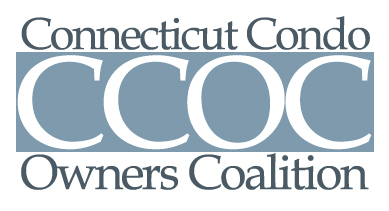Can A Connecticut Condo Board Restrict Owners From Renting Their Units?
Paul of Plainville asks what appears to be a simple question; can a condo board of directors restrict owners from renting their units or do owners have the right to vote on this issue?
Unfortunately the answer is complex and could depend on the exact circumstances involved in each condo complex. The decision could have major ramifications on the value of a condo if investors were not permitted purchase a unit for rental properly. On the flip side, if too many units are renter occupied banks are unable to provide mortgages. Also, too many renters could change the environment of a complex.
Glastonbury condo attorney Patricia Ayars has her take on the issue, but she notes that other lawyers may disagree with her. What has been your experience at your complex?
From Atty. Ayars:
I have recently been at odds with another attorney regarding the power of the board to adopt restrictions on the number of renters. It is my opinion that the board does have certain powers to restrict the leasing of residential units to meet the underwriting requirements of institutional lenders. The power is contained in Section 47-261b(f) (3) of the Connecticut Common Interest Ownership Act. This relevant part of this subsection states:
(f) An association may adopt rules that affect the use of or behavior in units that may be used for residential purposes, only to:. . . .
(3) Restrict the leasing of residential units to the extent those rules are reasonably designed to meet underwriting requirements of institutional lenders that regularly make loans secured by first mortgages on units in common interest communities or regularly purchase those mortgages, provided no such restriction shall be enforceable unless notice thereof is recorded on the land records of each town in which any part of the common interest community is located. Such notice shall be indexed by the town clerk in the grantor index of such land records in the name of the association.
This Section is modeled on Section 3-120b(f)(3) of the Uniform Common Interest Ownership Act. The Section does apply to communities formed before the adoption of the Common Interest Ownership Act.
The underwriting requirements referred to in the Subsection are those of FHA, Fannie Mae, and Freddie Mac. FHA does not insure loans in condominium communities that have less than 50% of the units owned by owner occupants. Fannie Mae and Freddie Mac will not buy investor mortgage loans in residential condominium communities that have less than 50% of the units being owned by owner occupants. All three prohibit any one person (which includes related parties of some types) from owning 10% or more of the units in a condominium. Fannie Mae and Freddie Mac purchase the majority of residential mortgages written by lenders. Unless the lender maintains its own portfolio of loans, the lender uses the Fannie Mae and Freddie Mac requirements as part of the lender’s underwriting process.
Condominium Associations usually cannot adopt rules affecting the use of units unless specifically granted the power under Section 47-261b (f). The power to restrict leasing is one of the exceptions to the prohibition. Therefore, the Board must carefully follow the requirements of the Subsection. The Board must use the appropriate procedures to adopt the rule and record the rule on the land records. The recording on the land records provides notice to the purchasers and mortgage lenders that the restriction exists.
Subsection (f)(3) states that the restriction on rentals must be “reasonably related” to the underwriting requirements. The restrictions are very clear. If there is even one unit more than the 50% requirement, the mortgages will not be written in that community. Consequently, most boards restrict rentals to a percentage that is less than 50% Boards have restricted rentals to lesser percentages because there are certain conveyances over which they have little or no control. For example, a unit may be sold to an investor without the Association’s knowledge, a mortgage company may foreclose on a unit or take it by short sale or deed in lieu a foreclosure, the unit may be taken pursuant to a tax sale, or a purchaser may buy the unit at a foreclosure sale. Some Boards also like to hold a unit or two in reserve for hardship cases. If the Board has a reasonable basis for using a lesser percentage, the Courts will probably uphold the restriction.
This broad view of the powers delegated to the condominium’s board of directors is consistent with the principle “inherent in the condominium concept … that to promote the health, happiness, and peace of mind of the majority of the unit owners since they are living in such close proximity and using facilities in common, each unit owner must give up a certain degree of freedom of choice which he might otherwise enjoy in separate, privately owned property. Condominium unit owners comprise a little democratic sub society of necessity more restrictive as it pertains to [the] use of condominium property than may be existent outside the condominium organization.” Hidden Harbour Estates, Inc. v. Norman, 309 So.2d 180, 181-82 (Fla.App.1975).
Weldy v. Northbrook Condo. Ass’n, 279 Conn. 728, 738, 904 A.2d 188, 194 (2006)
Hartford Condo Atty. George Coppolo agrees that most likely boards can make this change:
I believe it can, but if the declaration already contains explicit restrictions the declaration would probably have to be amended first to prevent a possible conflict between the declaration and board action.
The issue is a little more unsettled if the declaration contains a minimum voting requirement that must be satisfied before such restrictions may be imposed by the association. Some attorneys differ on whether this type of procedural requirement in the declaration trumps the right of boards to adopt rules that impose restrictions on leasing units. This might need some legislative clarification.






Here is the Florida Act regarding rental restrictions.
“Among the provisions included in this bill was an important paragraph that partially stopped condominium boards from creating rental restrictions, using the Supreme Court decision of Woodside Village Condominium Association, Inc. v. Jahren to justify taking away owners’ vested rights. This one sentence created within the Condo Act — FS 718.110(13) —
makes sure that existing rental rights are grandfathered in.
FS 718.110(13) Any amendment restricting unit owners’ rights relating to the rental of units applies only to unit owners who consent to the amendment and unit owners who purchase their units after the effective date of that amendment.”
I also think special attention needed to the word “amendment”.
There was another cas in Florida that addresses rental restrictions.
Goodwin v. Island Club Condominium, Inc.,
Arb. Case No. 2004-04-4285, Partial Summary Final Order (January 12, 2005)
Where the association was unable to amend the declaration to impose additional leasing restrictions, but instead amended the bylaws to limit the right to lease set forth in the declaration, the bylaw amendment constituted an illegal amendment to the declaration and was invalid. Woodside holds that purchasers are only on notice of lawful amendments to the documents, and does not act to validate amendments to the documents that are otherwise invalid.
Stonybrook Garden Coopertive Inc.,change the rules as they go along to suite their click of friends and their needs. AT present we have a Board member who has relocated to North Carolina to live with family member. daughter. Her unit is up for sale and to the best of the members knowledge her unite is empty and her no longer contrains andy personal effects. A Board member recently moved to have her travel paid back to Connecticut, because they consider her to be on the Board so that she can appear as a witness in a legal matter coming before the Court. THis month it was voted that our carrying charges are to go up in anuary, due to unexpected expenses. Just how legal and fair is this. The unit is not member occupied.
Can the association structure its fees so that rental units (and also vacant units) are charged a higher rate than those occupied by unit owners. It is my experience that rental and vacant units require a higher level of attention from the board (i.e. making sure the heat is on in cold weather to prevent broken water pipes)which would support the higher fee structure.
I OWN AND LIVE IN A GREENWICH CT. CONDO. SIX FLOORS PLUS PH MAKES FOR 24 CONDOS. 9 OWNERS ARE RESIDENTS 15 OWNERS ARE INVESTORS/LANDLORDS…..WE HAVE NOT HAD AN OWNER’S ANNUAL MEETING SINCE APRIL 2011…. AS OF 2013 WE HAVE NO ACTIVE PRES./ VICE PRES /TREAS /DIRECTOR ONE BOARD DIRECTOR AND SEC REMAIN ACTIVE…… .OUR C 1925 CONDO IS LONG OVER DUE FOR UPDATING. FOR THE PAST 2 YEARS PLUS 3 OWNERS WITH THE BOARD’S APPROVAL EXPLORED RESEARCHED AND PRESENTED A PLAN / PRICE TO BOARD. NUMEROUS REQUESTS FOR BOARD’S RESPONSE HAS PRODUCED A REPLY : SAME 3 OWNERS TO PRESENT FINDINGS ONE MORE TIME. MY FIRST CONDO ADVICE WELCOME
Is it not true that according to 24 CFR 203.41(a)(3) a condo project that imposes such a limit will be denied FHA approval? I have found that there was a waiver for one year in 2011, but since then this requirement will seems to automatically disqualify any project that imposes a limit to be denied FHA approval.
We have been informed that passing of our rule will in fact make the Condos ineligible for FHA.
http://www.aspetuckvillage.com/2013/11/24/hud-proposed-rule-unacceptable/
I am having an issue when my condo property management was sold as of Jan 2015, the new management company inflicted these strict rule on owners renting units. Do they have the authority to tell my renters that they can’t have 2 cats even though I, the owner allow it. And do they have the right to evict my tenants?
Property managers cannot set rules, only board of directors.
If a board member moves out of state how does he get removed from the board
Joe – what do your rules and documents say? My guess is that there probably is not a requirement for board members to actually live in their unit so they can move out of state.
Can a condo association thru it’s majority owner impose a fixed rental price to other owners that rent their units based on the fact that he rents all his units as a business? He is trying to limit competition to his set prices.
no
Can I request from the management company info regarding the quantity of units that are rented right now? Since the rules went into effect now 4 years later it seems that more units in my building are rentals than before. Perhaps the management company is not checking who moves in and out since there is no permit requirement.
of course
Question: Condo meeting minute? Do the monthly condo meeting minutes have to be signed by the secretary who is filing them with the BOD?
depends on what your bylaws say, usually minutes are approved by the board
Can an owner rent a room in their condo when there is rental restrictions? I ask because in my condo there is restrictions on rentals and although most owners abide a couple of them have a second person not related coming in and out everyday. What is my recourse other than reporting to management company? Can I file a lawsuit? I’m restricted from renting and on a waiting list, yet others are obviously are doing this.
Question regarding “All three prohibit any one person (which includes related parties of some types) from owning 10% or more of the units in a condominium.” (Our condo complex has an investor who has purchased units under both his own name and also under a solely owned LLC, that together add up to 10%.) Would all these units as a total be considered ownership by “one person”? Or would the ownership via LLC be separate.